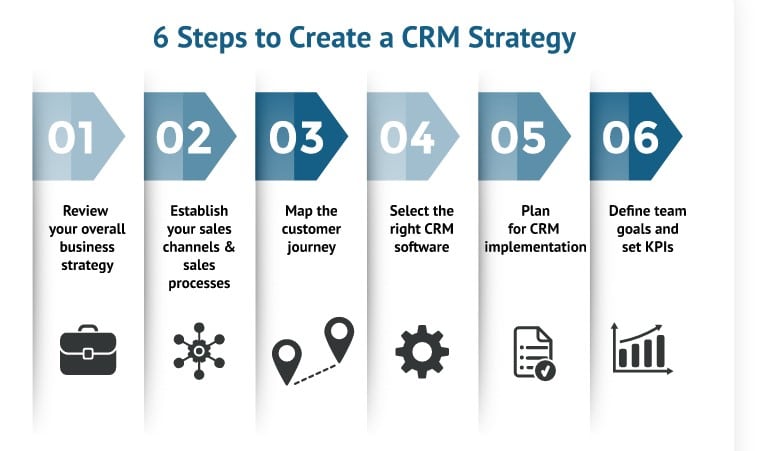As businesses grow, managing customer data becomes more complex. That’s where a customer relationship management (CRM) tool comes in handy. A CRM tool helps businesses manage and analyze customer interactions and data throughout the customer lifecycle.
However, with so many CRM tools available in the market, choosing the right one for your business can be challenging. In this article, we’ll explore the essential factors to consider when choosing the right CRM tool for your business needs.

Understanding Your Business Needs
Before selecting a CRM tool, it’s crucial to understand your business needs. Ask yourself what kind of customer data you need to manage and what features you require from the CRM tool. Some factors to consider include:
Industry
Different industries have unique requirements for managing customer data. For instance, e-commerce businesses require features such as inventory management, while service-based businesses need appointment scheduling and invoicing features.
Business Size
Small businesses may require a basic CRM tool with limited features, while large businesses need a robust CRM tool with advanced functionalities.
Budget
CRM tools range from free to expensive, so it’s essential to choose a tool that aligns with your budget.
Types of CRM Tools
There are three types of CRM tools to choose from: Operational, Analytical, and Collaborative.
Operational CRM
An Operational CRM focuses on automating and streamlining business processes. It helps businesses manage customer data throughout the customer lifecycle, from lead generation to after-sales support.
Analytical CRM
Analytical CRMs focus on data analysis and provide insights on customer behavior and preferences. This information helps businesses create targeted marketing campaigns and improve customer satisfaction.
Collaborative CRM
Collaborative CRMs focus on improving communication and collaboration within a business. It helps teams share customer data, track customer interactions, and streamline workflows.
Key Features to Look for in a CRM Tool
When selecting a CRM tool, consider the following essential features:
Ease of Use
Choose a CRM tool that is easy to use and doesn’t require extensive training for your team.
Customization
Select a CRM tool that allows you to customize fields, reports, and workflows to match your business needs.
Integration
The CRM tool should integrate with other tools you use, such as email marketing software and accounting software.
Mobile Access
Choose a CRM tool that offers mobile access to manage customer data while on-the-go.
Reporting and Analytics
Select a CRM tool that provides reporting and analytics features to track customer behavior and identify trends.
Security
Choose a CRM tool that provides secure data storage and follows data privacy regulations.
CRM Tool Selection Process
To select the right CRM tool for your business, follow these steps:
Step 1: Identify Your Business Needs
Identify the customer data you need to manage and the features required.
Step 2: Research CRM Tools
Research the different CRM tools available and evaluate their features and pricing.
Step 3: Evaluate the Shortlisted CRM Tools
Create a list of CRM tools that align with your business needs and evaluate them based on the features and pricing.
Step 4: Test the CRM Tools
Test the shortlisted CRM tools by requesting a demo or a trial period to identify the tool’s ease of use, customization, and integration capabilities.
Step 5: Choose the Right CRM Tool
Choose the CRM tool that best aligns with your business needs, budget, and team requirements.
Conclusion
Choosing the right CRM tool is essential for managing customer data and improving customer interactions. When selecting a CRM tool, consider your business needs, the type of CRM tool, and the essential features. Follow the CRM tool selection process to identify the best CRM tool that aligns with your business requirements.
FAQs
- What is a CRM tool, and why is it important for businesses?
A CRM tool is software that helps businesses manage and analyze customer data throughout the customer lifecycle. It’s essential for businesses because it improves customer interactions, increases customer satisfaction, and helps businesses make data-driven decisions.
- What are the different types of CRM tools?
There are three types of CRM tools: Operational, Analytical, and Collaborative. Operational CRMs focus on automating business processes, Analytical CRMs provide insights on customer behavior and preferences, and Collaborative CRMs improve communication and collaboration within a business.
- What are some essential features to look for in a CRM tool?
Some essential features to look for in a CRM tool include ease of use, customization, integration, mobile access, reporting and analytics, and security.
- How do I choose the right CRM tool for my business?
To choose the right CRM tool for your business, identify your business needs, research CRM tools, evaluate shortlisted CRM tools, test the CRM tools, and choose the tool that best aligns with your business needs, budget, and team requirements.
- Can I use a free CRM tool for my business?
Yes, there are free CRM tools available in the market. However, it’s essential to ensure that the free CRM tool aligns with your business needs and offers essential features to manage customer data effectively. It’s also crucial to check for any limitations in the free version and evaluate the pricing for paid versions.